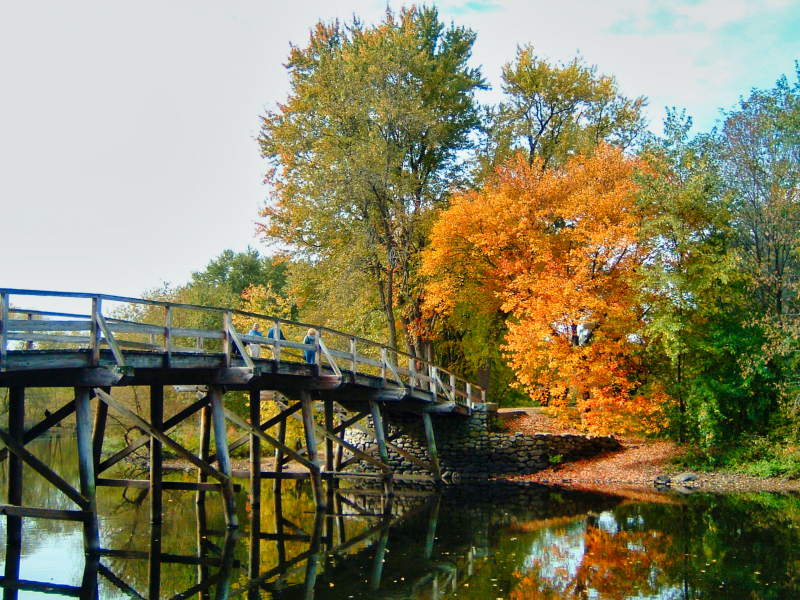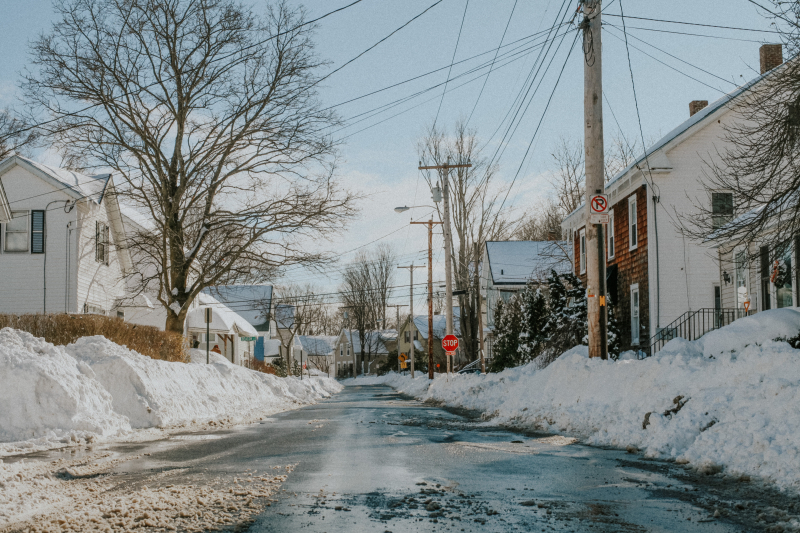Concord
Concord is steeped in literary and Revolutionary War history. The "shot heard "round the world" was fired here on the North Bridge in 1775, and the area is rife with other historic landmarks from the early days of the Revolutionary War. Concord is also associated with several great American authors, including Henry David Thoreau, who immortalized nearby Walden Pond during his solitary stay here. The Concord Museum is the best place to learn about the town's most important sites and residents, as well as the Native Americans who came before European settlers.
A Paul Revere lantern, one of the two legendary lights that alerted the revolutionaries to the British attack, is among its most important collection items. Thoreau's writing desk and other personal items, as well as a recreation of Ralph Waldo Emerson's study and other period rooms, are among the other exhibits. Literary tourists can visit several significant sites, including the author's former home, the Ralph Waldo Emerson House. He entertained other prominent writers and thinkers of his time, including Thoreau and Louisa May Alcott, while living here, and it was here that he wrote his famous essay Self-Reliance. Another popular attraction in Concord is Thoreau's cabin on Walden Pond, which also has a visitor center. Visitors can pay their respects to some of Concord's great writers, including Emerson, Thoreau, and Alcott, as well as Nathaniel Hawthorne, at Sleepy Hollow Cemetery, also known as Author's Ridge.












